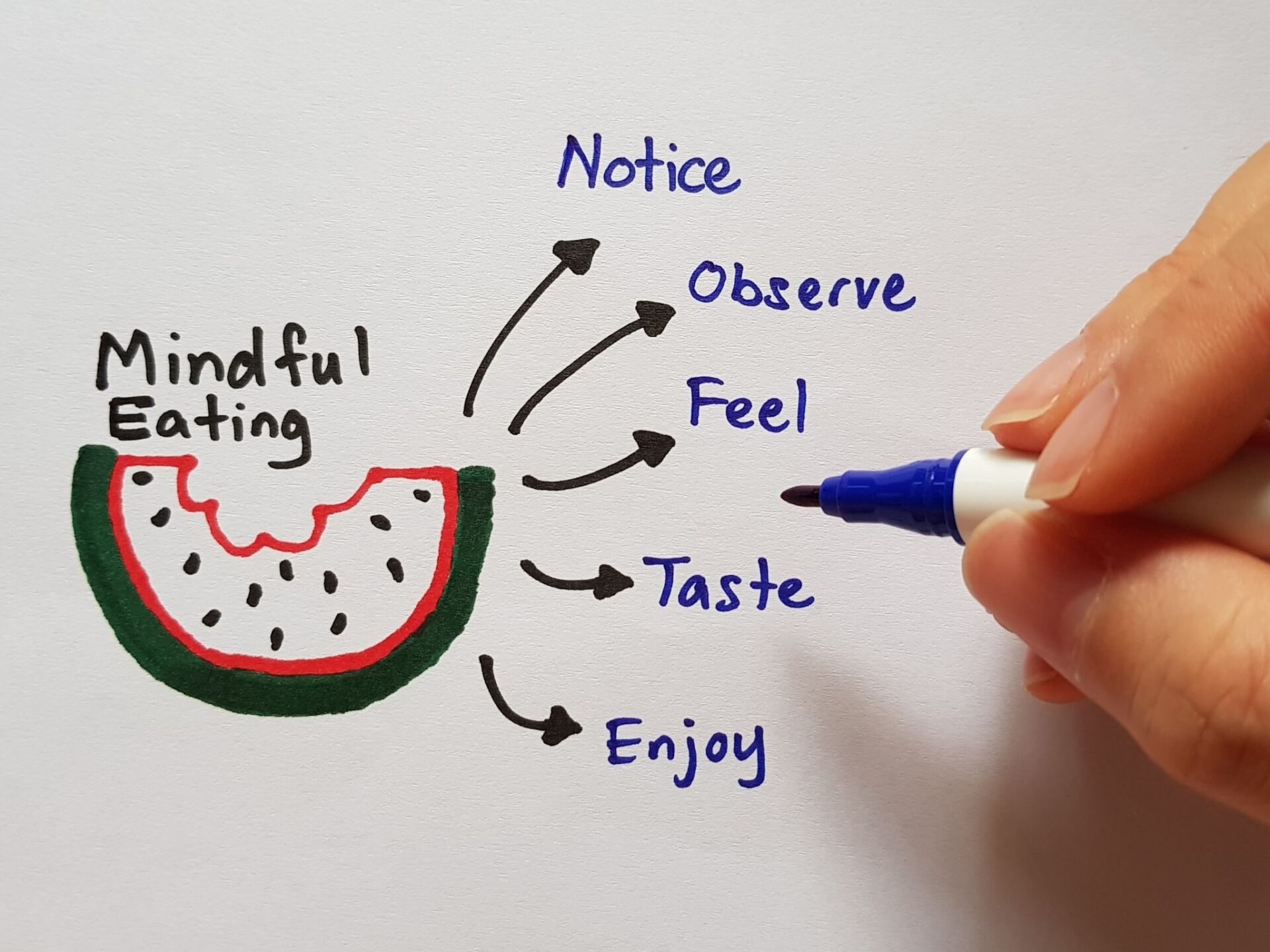Mindful Eating: How to Develop a Healthy Relationship with Food and Improve Your Well-being

Eating is an essential part of life, but many people have a complicated relationship with food. From feeling guilty after indulging in a treat to constantly counting calories, it can be easy to lose sight of the pleasure of eating and instead see it as a source of stress.
Mindful eating is a practice that can help you develop a healthier relationship with food and improve your overall well-being.
Mindful Eating

What is Mindful Eating?
Mindful eating is a form of meditation that involves paying attention to the experience of eating, from the moment you start preparing a meal to the last bite.
This practice encourages you to tune in to your body’s hunger and fullness signals and make conscious choices about what, how much, and why you are eating.
The Benefits of Mindful Eating
There are many benefits to practicing mindful eating. By focusing on the present moment and your physical sensations, you can improve your body awareness and better understand your hunger and fullness cues.
This can help you make more informed food choices and avoid overeating.
Mindful eating can also reduce stress and improve your relationship with food, making mealtime a more enjoyable experience.
How to Practice Mindful Eating
Getting started with mindful eating can be as simple as taking a few minutes to focus on your meal. Here are some tips to help you get started:
- Turn off distractions. Avoid eating in front of a screen or while multitasking. Instead, sit down at the table and focus on your meal.
- Savor each bite. Take small bites and chew slowly, savoring the taste, texture, and aroma of your food.
- Pay attention to hunger and fullness signals. Check-in with your body throughout the meal and stop eating when you feel satisfied, not full.
- Practice gratitude. Before eating, take a moment to express gratitude for your food and the people who made it possible.
Common Challenges of Mindful Eating
While mindful eating can be a powerful tool for improving your relationship with food, it can be difficult to incorporate into your daily life.
Some common challenges include:
- Distractions. It can be difficult to stay focused on your food when there are so many distractions around you.
- Emotional eating. Some people turn to food as a way to cope with stress or emotions, which can make it difficult to eat mindfully.
- Breaking old habits. Changing the way you eat can be difficult, especially if you’ve developed unhealthy habits over time.
Overcoming the Challenges of Mindful Eating
Here are some tips to help you overcome common challenges and make mindful eating a regular part of your routine:
- Start small. Incorporate mindfulness into one meal a day and gradually increase as you get more comfortable.
- Find a supportive community. Surround yourself with people who support your goals and can offer encouragement and guidance.
- Be patient and persistent. Changing the way you eat is a process, and it may take time to see results. Stick with it and stay committed to your practice.
Conclusion
Mindful eating is a simple and effective way to improve your relationship with food and enhance your overall well-being.
By focusing on the present moment, paying attention to hunger and fullness signals, and practicing gratitude, you can make mealtime a more enjoyable and stress-free experience.
While there may be challenges along the way, by starting small and being patient and persistent, you can develop a healthier relationship with food and enjoy the many benefits of mindful eating.
